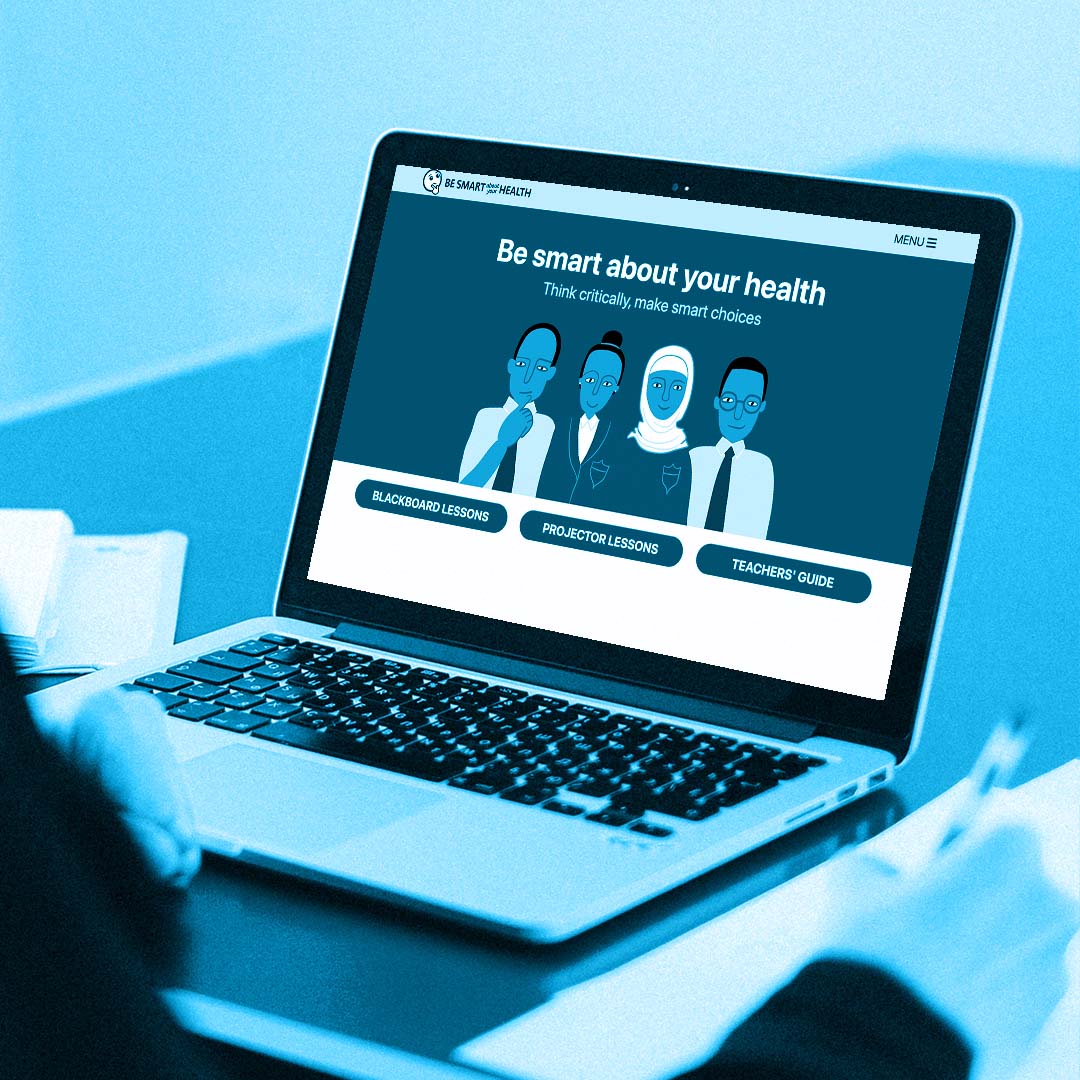
The 'Be smart about your health' resources are digital, freely accessible and adaptable to the context of students and teachers. The set was developed by the Informed Health Choices Network.

23|AUGUST|2023
Be smart about your health: digital resources for students
The 'Be smart about your health' resources are digital, freely accessible and adaptable to the context of students and teachers. The set was developed by the Informed Health Choices Network.
Epistemonikos developed the Be smart about your health website where the educational resources developed by the Informed Health Choices Network, of which we are part, are freely available.
The Informed Health Choices Network, an international multidisciplinary network dedicated to the development of educational resources that enable people to critically evaluate health information and make informed decisions about their health and their environment, developed a new set of resources for students aged 14-16 in Kenya, Uganda and Rwanda. The Be smart about your health resources are digital, freely accessible and adaptable to the context of students and teachers.
The Epistemonikos Foundation implemented the Be smart about your health website where the resources are available free of charge. Among the resources available are 10 lectures of 40 minutes each in 2 modalities: whiteboard and projector. In addition, a Teacher's Guide and materials for teacher training workshops are provided.
In a first evaluation of the resources, both students and teachers rated the lessons as relevant and useful for their daily lives. The resources can be used in classrooms without internet connection or stable electricity. The effect of using the resources on students' ability to think critically about actions that impact their health is being evaluated through randomized trials in the three countries. In addition, follow-up studies are planned after one year, to be conducted in 2023.
Resource development started in 2019
The Informed Health Choices (IHC) Network project is funded by the Norwegian Research Council and involves 5 years of development and evaluation of educational resources for secondary school students. During the first 2.5 years, the team of researchers in East Africa and Norway focused on developing the resources based on local characteristics.
The team aimed to design resources that are:
- Digital, to avoid printing costs
- Suitable for use with the technology and infrastructure available in each school
- Compatible with the national curriculum, if possible
- Evidence-based about effective strategies for teaching critical thinking
- Developed using a human-centered design approach
- Experienced by students and teachers as accessible, useful, usable, understandable, credible, desirable, and appropriate
- Easily translatable and adaptable to other contexts
- Sustainable, independent of the development team.
In phase 1 of development, the needs of users and stakeholders were researched, as well as the educational context, to inform the team's decisions regarding content, design and technical aspects. In phase 2, prototypes were developed based on feedback gathered and analyzed to arrive at the final version.
About the Informed Health Choices Network
The IHC Network's mission is to empower people to make informed decisions. Their work began with the development of resources for primary school students in low-income countries. They have also created resources for teachers and parents, all focused on facilitating the teaching of critical thinking and scientific reasoning.
The problem that motivates IHC's work is that most of the health claims that circulate among people are unreliable and that people lack the skills to evaluate these claims. Believing unsubstantiated claims can lead people to choose actions that are ineffective or harmful to their health, or not to choose actions that benefit or protect their health.
Developing critical thinking is "vaccinating" against disinformation
While disinformation can be debunked and corrected, this is not the most effective strategy for combating disinformation, since once disinformation is disseminated, people have already established a narrative on the issue and have probably formed an opinion that will be more or less resistant to change. In contrast, "inoculating" or "vaccinating" people against misinformation before it is disseminated by giving them the tools to learn how to think critically about health claims and how to use the information to make better decisions has the potential to be more broadly and durably protective against misinformation.
In order to implement the strategy of "vaccinating" against health misinformation through the tools of critical thinking, the IHC project developed a series of Key Concepts for evaluating health claims [2]. Using the concepts, they subsequently developed printed educational resources for elementary school students (10-12 years old) and their teachers, as well as a podcast for parents. Since their creation, the resources have been translated into 12 languages and adapted to the context of various countries.
The resources were evaluated through randomized trials in Uganda, which showed that their use led to an improvement in the ability of schoolchildren and teachers to evaluate statements about actions that impact health and to make informed decisions. However, subsequent studies also showed that printing costs and lack of time were major barriers to implementation of the resources.